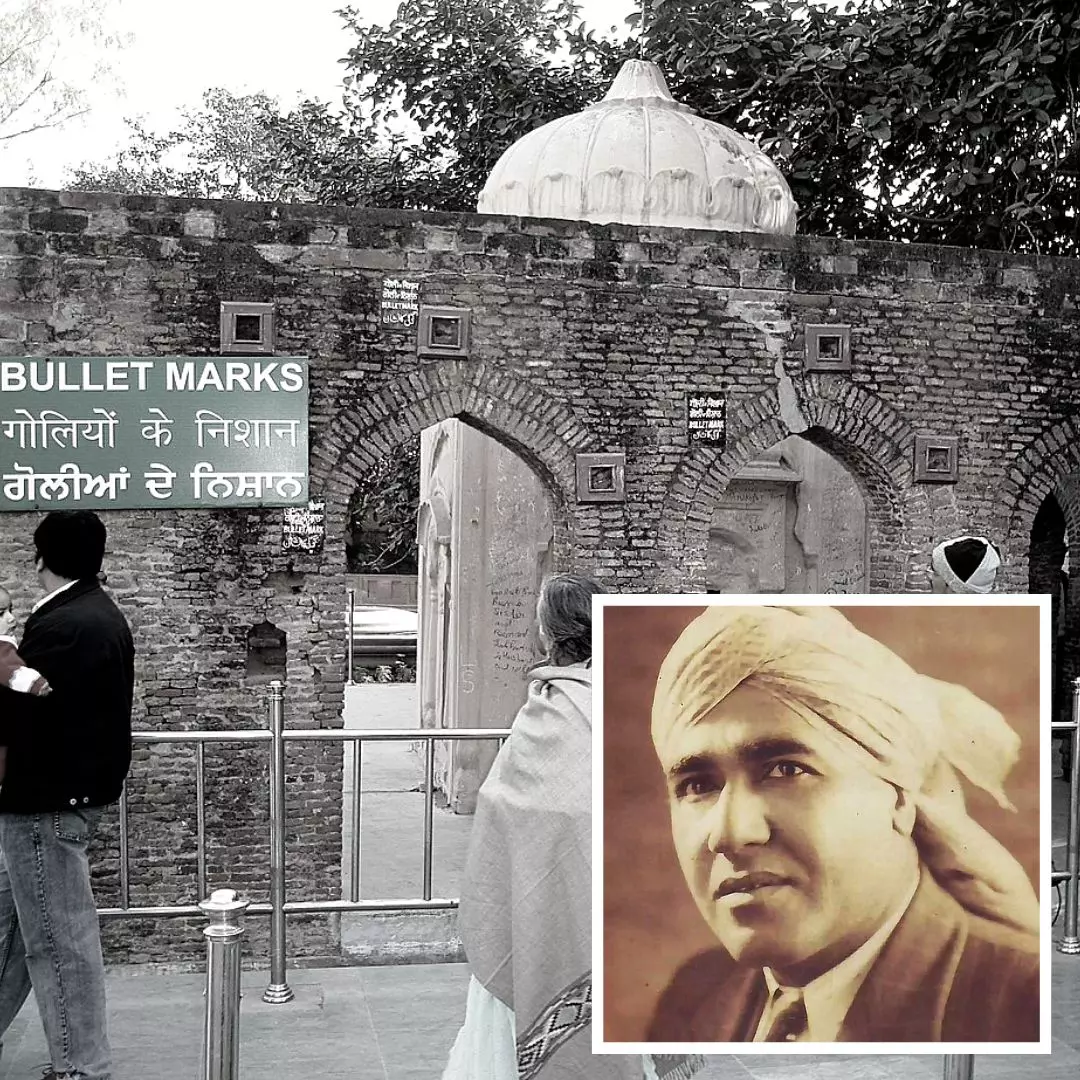Udham Singh: Know About This Indian Revolutionary Who Avenged Jallianwala Bagh Massacre
Writer: Ronit Kumar Singh
A confident and reliable journalist who always desires to toss the unheard voices. I cover politics and governance extensively through stories.
India, 26 Dec 2022 7:18 AM GMT
Editor : Shiva Chaudhary |
A post-graduate in Journalism and Mass Communication with relevant skills, specialising in content editing & writing. I believe in the precise dissemination of information based on facts to the public.
Creatives : Ronit Kumar Singh
A confident and reliable journalist who always desires to toss the unheard voices. I cover politics and governance extensively through stories.
The revolutionary Indian belonging to HSRA and Ghadar party was hung to death in 1940 after he avenged the Jallianwala Bagh massacre by killing General Michael O’ Dwyer in Caxton Hall, London.
An Indian revolutionary, Udham Singh, born on December 26, 1899, belonged to the Hindustan Socialist Republican Association (HSRA) and Ghadar Party. He is widely known for assassinating Michael O'Dwyer, a former lieutenant governor of Punjab. Singh performed the assassination in revenge for the Jallianwala Bagh massacre, which took place in 1919 in Amritsar.
The great martyr (initially Sher Singh) was born in the neighbourhood of Pilbad, 130 miles away from British India's Lahore, to a manual labourer father, Tehal Singh and Narain Kaur. He was the youngest, with two years difference between him and his elder brother Sadhu. Their parents died when they were young in different accidents.
Both the brothers were transferred to a Khalsa Orphanage for their upbringing. During the same time, Sadhu became Mukta, and Sher Singh was renamed Udham Singh. After his elder brother's death due to critical illness, Udham served in the British Indian Army during the First World War.
Jallianwala Bagh Massacre
Several local leaders of the Indian National Congress, including Saifuddin Kitchlew and Satyapal, were arrested by the British police for violating the Rowlatt Act. After a week, as many as 20,000 people gathered at the Jallianwala Bagh, Amritsar, to peacefully protest the arrests, and celebrate Baisakhi, an important festival in the Sikh religion. Uddham and his friends were serving water and other refreshments to the crowd when British troops under the supervision of Colonel Reginald Dyer opened fire. It brutally killed several hundred people, known as Jallianwala Massacre.
Udham, after witnessing the brutal killing of his brother and sisters, took part in the Indian Independence Movement and revolutionary politics. Bhagat Singh and the entire HSRA group inspired him. He got involved with the Ghadar Party in 1924, organising overseas Indians to overthrow colonial rule from India.
He returned to India in 1927 on orders of Bhagat Singh with ammunition and various types of arms. For the same, he was arrested and sentenced to a five-year term in prison by the British administration.
Assassinating General O'Dwyer
He was released from prison in 1931 under critical surveillance over his movement by the British police. He made his way to Kashmir despite being under constant surveillance and escaped to Germany. He reached London in 1934, where he searched for permanent employment. On parallel hands, he made his plans to assassinate Michael O'Dwyer, who was responsible for the Jallianwala Bagh massacre.
General O'Dwyer was scheduled to conduct a collaborative meeting of the Central Asian Society and East India Association on March 13, 1940, at Caxton Hall, London. Concealing a revolver in a book, Udham entered the event in his wife's name. As the meeting ended, he shot General O'Dwyer twice, killing him on-spot. Several other British officials were also injured in the assassination.
He was arrested immediately by the British administration for killing General O'Dwyer at an event. When in custody at Brixton jail, he said, "I did it because I had a grudge against him. He deserved it. I don't belong to society or anything else. I don't care. I don't mind dying. What is the use of waiting until you get old? ... Is Zetland dead? He ought to be. I put two into him? I bought the revolver from a soldier in a public house. My parents died when I was three or four. Only one dead? I thought I could get more," Wikipedia reports.
He was hung to death in July 1940, but he led the motivation and spirit of freedom among millions of Indians. In the Mayawati government, a district in Uttarakhand was named Udham Singh Nagar to pay homage to the great martyr of India. Several other public places, including a museum in Amritsar, are named after him.
Also Read: Modhera Temple, Vadnagar In Gujarat & Unakoti In Tripura Make It To UNESCO's Tentative List
 All section
All section















